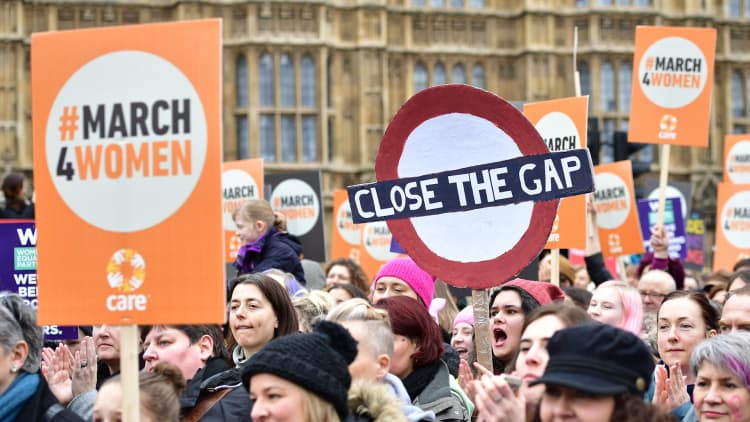There's a substantial pay gap between men and women congressional staffers, especially in Republican House and Senate offices, new research shows.
The study "The Gender Pay Gap in Congressional Offices" examined salaries for approximately 46,000 congressional staffers from more than 1,000 congressional offices between 2000 and 2014.
While pay for elected members of Congress is set by legislation, individual offices have discretion over how they allocate funds to staff members. During the period studied, women congressional staffers consistently earned less than men. On average, men earned an annual salary of $57,547 and women earned $51,457.
The average pay gap between male and female congressional staffers was more than $5,500 in the House and more than $7,500 in the Senate, amounting to gaps of roughly 11 to 12 percent in each chamber.
Additionally, women comprised the largest share of staffers overall at 55 percent, but on average, occupied just a third of senior positions.
Pay gaps were widest for experienced staffers. Among the top three positions in each office, a gap of $10,900 existed in the House and a gap of $9,900 existed in the Senate.
While gender gaps exist for offices of both political parties, the gap is more than 50 percent larger in Republican offices for staffers with more than five years of experience. Republicans in the House and Senate also employ a much larger share of men in top staff roles.
The research comes as Washington grapples with stagnated and declining staff salaries and Congress debates whether to pay interns and add more benefits for staffers. Some Congress members have struggled with rising living costs in the D.C. area.
The study doesn't show evidence of wage discrimination, said Maxwell Palmer, a Boston University professor who co-authored the study with Emory University graduate student Joshua McCrain.
Still, the wage gap is concerning, according to the researchers, because staffers have substantial influence within policy making and information processing in Congress. A wage gap, they said, could mean that women's "voices in decision making are more likely to be limited."
The data doesn't just document an "interesting pattern," Palmer told CNBC Make It. It also presents a key opportunity.
"Shedding light on these issues might inspire Congress or the Chief of staff to make the pay gap an issue." Raised budgets, noted Palmer, wouldn't just increase pay for all staffers, but also "give members of Congress a chance to reduce gender gaps."
Like this story? Subscribe to CNBC Make It on YouTube!
Don't miss: These are the women making history as the 116th Congress is sworn in



